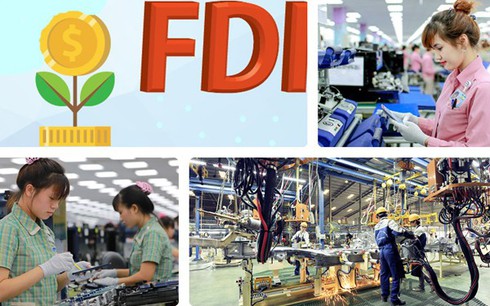


Despite FDI shown signs of a slowdown as a result of the negative impact of COVID-19, experts believe that the nation will be able to welcome an array of fresh dual investment after the pandemic.
 |
| Singapore, Thailand, Japan, the Republic of Korea and China are leading FDI investors in Vietnam during the first 4 months of 2020 |
According to the Ministry of Planning and Investment’s Foreign Investment Agency (FIA), the country attracted US$12.33 billion in FDI in the first four months of 2020, an annual fall of 15.5% due to the impact of the COVID-19 pandemic,
Moreover, the FIA has attributed this decrease in FDI over the four month period to travel restrictions, in addition to changes in new investment decisions and the expansion of projects as a result of the epidemic. Furthermore, the supply of input materials for production as well as the demand placed on the output products of businesses faced numerous difficulties.
Simultaneously, the consumer market has tended to be narrower as a result of a series of delays and cancelled orders. This has led to plenty of FDI enterprises facing challenges when trying to maintain and expand production and business due to a lack of foreign experts.
Despite these difficulties, the nation has earned plenty of international plaudits in recent times because of its implementation of effective COVID-19 prevention efforts, thus creating confidence for foreign financiers to feel secure in their investment when doing business in the country. Following this, Vietnam has also been rated as one of the least affected countries globally, as well as being forecast to overcome the "storm" of an impending global economic recession.
Prof. Nguyen Mai, chairman of the Foreign-invested Business Association, said that decreasing FDI during the reviewed period is only a temporary trend, noting that the main impact of the COVID-19 has been to cause a global economic slowdown.
The expert has therefore forecast that FDI attraction will enjoy a boom after the epidemic, with some optimistic signals indicating that the nation has brought the COVID-19 under control and has successfully avoided prolonged blockades. In addition, the trend of moving factories out of China has gathered pace, with Vietnam being the main target of foreign investors.
Since 2019, an array of technology corporations have made plans to depart China to avoid the fallout from the trade war between the United States and China. Multinational companies such as Samsung and LG have invested in new production lines throughout Vietnam as opposed to China as previously planned.
Japanese newspaper Nikkei has reported that "giants" such as Google and Microsoft are moving production lines of their phones and laptops from China to the country due to the impact of the COVID-19.
Nintendo, a video game company, has also transferred part of its Switch Lite game console production to the nation.
The changing global landscape has seen Vietnam quickly become viewed as a promising investment destination since a wave of factory relocations from China first began.
The disruption to the global supply chain over the past few months has made many countries realize the urgent need to diversify their production portfolio, as opposed to simply focusing on China.
According to the FIA, the nation’s FDI attraction has shown optimistic signals as it gradually begins to increase again through to the end of this year, therefore creating momentum for 2021 due to the anticipation of capital flows to reposition production of multinational firms. Many groups globally are preparing investment plans in the country thanks to the nation's much improved environment and incentive investment policies.
(According to VOV)